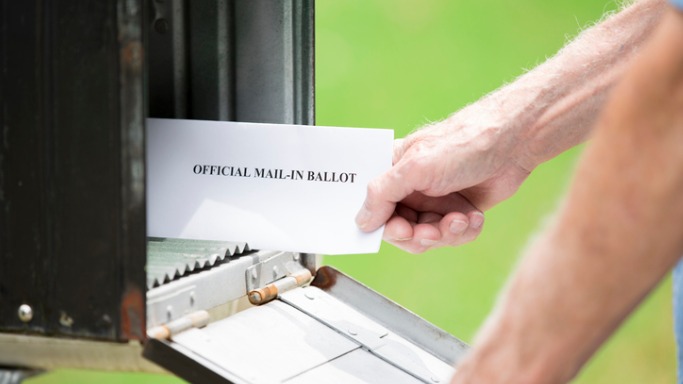When I was a kid, my parents always set off for the polling place amicably chortling that they were going to kill each other’s vote (which they inevitably did).
Election day was a ritual, a shared cultural experience, that united the country. Even if you disagreed with your nearest and dearest over the desired outcome. This seems like a bit of quaint Americana, doesn’t it?
Mail-in voting, whether you are for or agin it, is another step towards destroying the traditional American way of electing our leaders.
IWF has produced several blogs (here, here, and here) and a compelling podcast (here) showing why mail-in voting is a threat to the integrity of our elections.
Now, Daniel McCarthy, writing in the U.K. Spectator further explains how mail-in voting can undermine elections. His piece is headlined “How Democracy Dies.” McCarthy predicts, as do many others, that mail-in ballots will lead to a debacle that will make the Bush-Gore Florida recount of 2000 look like child’s play.
First, universal mail-in voting would destroy an important, unifying experience (mail-in voting is different from absentee voting, which often requires a reason for obtaining an absentee ballot):
There are two even more fundamental problems with the push for mail-in voting: it violates the very principle and concept of an election in the way most Americans have understood it until now, as something that happens at a particular place and time. And it creates, in effect, different elections and different electorates for Donald Trump and Joe Biden, one of which might win the day-of voting while the other wins the mail-in vote. When different principles are combined with different outcomes, it’s a recipe for a legitimacy crisis, even if the ensuing litigation doesn’t lead, once again, to the final decision being made by a Republican majority on the Supreme Court.
Mail-in voting, especially if it is put in place in haste, is more likely to lead to contested results than the traditional method of voting:
A multitude of things can go wrong with postal ballots (forgotten signatures, late delivery or bags of mail turning up unexpectedly, for starters), setting the stage for a candidate who wins by mail but loses among voters on Election Day to mount a challenge — or rather, to mount challenge after challenge, state by state, anywhere the day-of winner’s margin might be close enough to overcome. As Americans learned 20 years ago in Florida’s presidential vote-counting and recounting, even without mail-in voting much can go amiss. Now consider what would have happened if the Florida recount had taken place with masses of postal ballots in the mix too. And then imagine the Florida scenario playing out in Pennsylvania, Michigan, Wisconsin, Arizona and God knows where else.
It’s an ugly picture. The more ugliness there is — the more states with contested ballots that could override the results of the uncontested votes — the likelier the whole thing is to wind up in front of the Supreme Court, as it did 20 years ago. Are Democrats prepared to accept a second justice-decided election that goes against them? Will the Republican-majority Court, fearful of again seeming partisan, in fact show a bias toward Biden? Republicans may well think so if a decision goes against them. Justice John Roberts’s record so far does nothing to allay suspicions that he makes such political calculations to preserve the court’s appearance of ‘balance’. But if the court has to decide a presidential election once again, it will suffer grave damage to its reputation no matter what. As may the entire electoral system.
Therein lies a greater problem. Sore losers are nothing new in American politics, and even an absolutely clear win by Trump or Biden will leave many voters angry and heartbroken and even in denial about the result. A revolution in the very idea of what an election is, however, leads to a new and deeper kind of conflict. Already progressives have fantasized about abolishing the Electoral College and ending the equal representation of states in the Senate.
President Trump repeatedly is being asked if he will accept the election results. Trump always says he will wait and see.
That is the wrong question. The question for Trump is would he leave quietly if he loses, and Trump is patriotic and we assume the answer to that question is yes (though he’s not above teasing the media on that score).
Of course, Trump will contest the results of he thinks they are fraudulent. Joe Biden will do the same thing. Hillary Clinton did not contest the results in court, but she has contested them so constantly and so vocally that many Democrats wish she had gone quietly.
Mail-in voting, if set up without extensive planning, increases the chances that the orderly transition of power, perhaps our proudest political tradition, could become another bit of quaint Americana.

